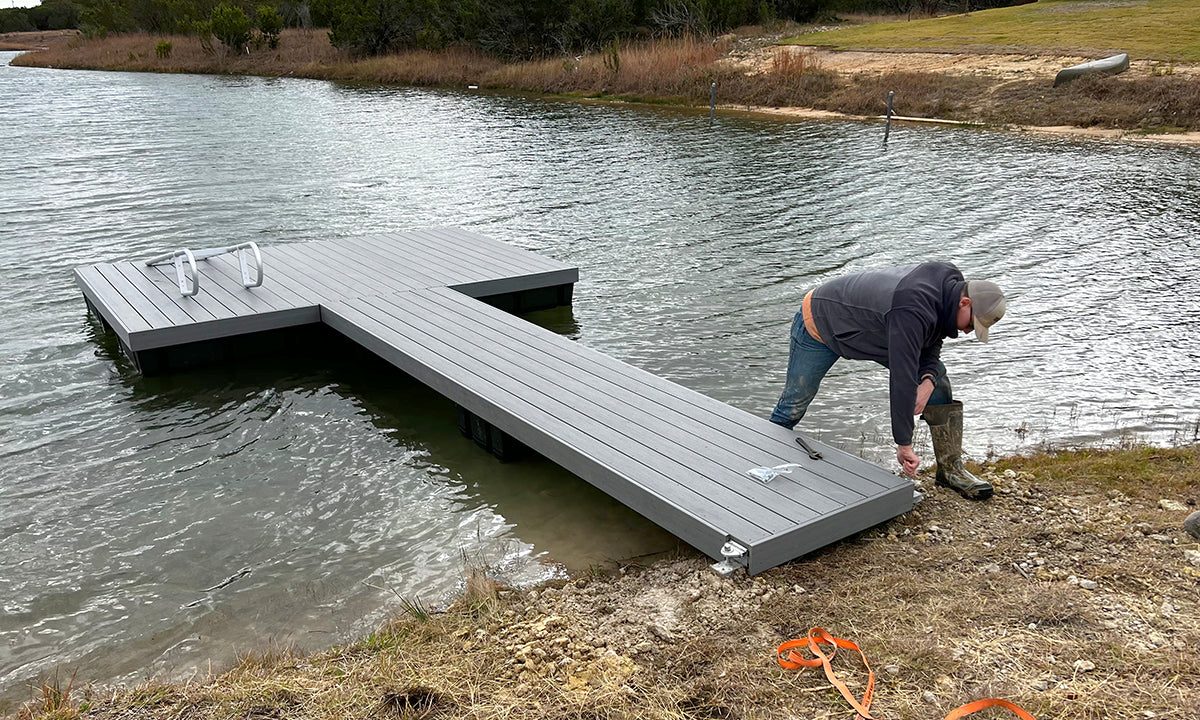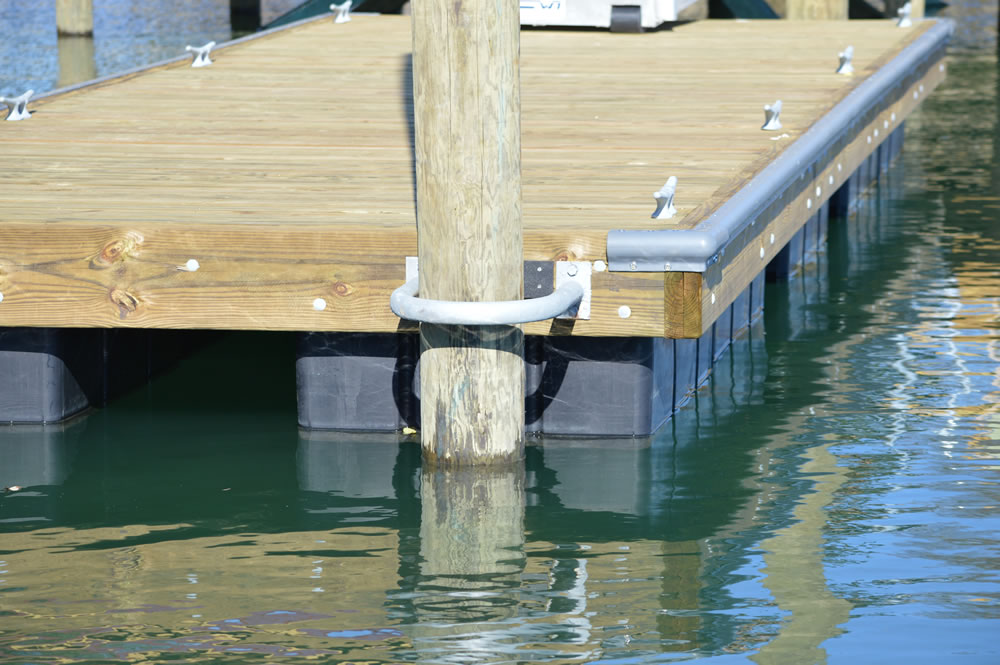The Importance of Quality in Floating Dock Builder Choice for Durable Docks
The Importance of Quality in Floating Dock Builder Choice for Durable Docks
Blog Article
The Ultimate Guide to Choosing the Ideal Floating Docks
Choosing the ideal floating dock calls for a comprehensive understanding of different aspects that affect both efficiency and longevity. Aspects such as dock kinds, materials, and necessary attributes dramatically impact your decision-making process. Factors to consider around installment and spending plan can better make complex the option. By taking a look at these facets methodically, one can make certain a financial investment that not just satisfies immediate needs however likewise enhances overall property value. As we check out these important elements, it ends up being clear that the best options can result in a long lasting and functional option tailored to your specific needs.
Comprehending Floating Dock Types
When selecting a drifting dock, it is vital to comprehend the various kinds available, as each offers unique purposes and applications. Floating docks primarily fall right into three groups: modular, fixed, and pontoon docks.
Modular docks are made up of specific sections that can be easily constructed or reconfigured, making them ideal for changing water degrees and diverse usages, such as business operations or entertainment activities. Their adaptability permits customization based on particular demands.

Pontoon docks are defined by their resilient structure, often made up of numerous pontoons that offer security and support. They are particularly fit for larger vessels and are frequently used in marinas or for waterfront properties. Comprehending these kinds aids in choosing the most appropriate floating dock to fulfill certain demands, making certain optimal performance and safety and security.
Secret Products for Sturdiness
Selecting the ideal products for floating docks substantially influences their sturdiness and long life. The most typical products consist of timber, plastic, metal, and composite materials, each offering unique benefits and restrictions.
Timber, often favored for its visual allure, requires routine upkeep to withstand wetness and degeneration. Pressure-treated lumber can boost resistance to rot, but it may still be vulnerable to bugs and weathering.

Plastic docks, made of high-density polyethylene (HDPE), are immune to rust, UV radiation, and influence, making them a prominent choice for coastal settings. Their lightweight nature also facilitates simple installation and moving.
Steel docks, commonly created from light weight aluminum or galvanized steel, provide extraordinary toughness and sturdiness. They are immune to rust, specifically when treated, however might require extra insulation to protect against heat build-up in hot climates.
Composite materials, incorporating timber fibers and plastics, deliver the advantages of both timber and plastic, resisting wetness and fading while calling for minimal maintenance. - floating dock company
Inevitably, the option of products should line up with ecological problems, planned usage, and maintenance preferences to make sure the floating dock remains more practical and visually pleasing over time.
Vital Attributes to Consider
While the selection of materials is vital, taking into consideration essential features for floating docks is just as essential to make sure optimum efficiency and customer satisfaction. One crucial function to examine is the dock's buoyancy ability, which identifies just how much weight it can sustain without submerging. floating dock builder. This is important for accommodating boats, individual watercraft, and even leisure activities
Additionally, portability is a significant factor to consider. Depending upon your requirements, you may want a dock that is very easy to dismantle and deliver, specifically if you intend to move it seasonally. Stability is an additional necessary function; a well-designed floating dock ought to lessen movement brought on by wind and water currents, giving a safe system for individuals.
Safety attributes, such as non-slip surfaces and rounded edges, are also critical to avoid mishaps, especially in damp problems. Moreover, consider the accessibility of devices, such as bumpers, ladders, and cleats, which can enhance the performance of your dock.
Installment and Upkeep Tips
Establishing and keeping a drifting dock requires cautious preparation and focus to detail to ensure its long life and optimal performance. Begin by choosing an ideal area that lessens exposure to solid currents and waves, which can cause damage. Guarantee that the water depth suffices for the dock's elevation which it is secured securely to stop activity.
Throughout installation, adhere to the manufacturer's guidelines closely, as incorrect assembly can jeopardize security. Use high-grade materials resistant to corrosion, such as aluminum or treated wood, to enhance my review here longevity. Routinely examine all elements, including floats, adapters, and anchoring systems, for indicators of damage or wear.
If your dock utilizes flotation protection devices, ensure they stay free and undamaged from punctures. By sticking to these setup and upkeep ideas, you can appreciate a trustworthy and functional floating dock for years to come.
Budgeting for Your Dock
Budgeting for your dock is a crucial action that can dramatically impact your overall fulfillment and investment in a waterside home. Developing a clear spending plan helps you browse the various alternatives readily available and ensures you make informed decisions that straighten with your financial capabilities.
Begin by establishing the size and style of the dock you require, as these factors will greatly affect the cost. Floating docks can differ dramatically in rate, depending on products, buoyancy, and features like ramps and accessories. Study various producers and providers to contrast prices and understand the marketplace value.
In addition to first prices, think about ongoing costs such as upkeep, insurance coverage, and possible repair work. Assign funds for these repeating costs to avoid surprises down the line. It's additionally prudent to spending plan for any kind of needed authorizations or inspections, which might be called for by regional policies.
Finally, bear in mind the potential return on investment. A well-planned dock can boost your residential or commercial property's value and charm, offering a favorable economic impact in the lengthy term. By budgeting efficiently, you can make sure that your dock meets your requirements without jeopardizing your directory monetary stability.
Verdict
In verdict, selecting the perfect floating dock requires a detailed analysis of numerous factors, consisting of dock types, materials, crucial features, and installation procedures. Careful consideration of budgetary restraints will better guarantee an audio financial investment.

While the option of materials is crucial, considering important features for floating docks is similarly essential to ensure optimum efficiency and user satisfaction.Setting up and keeping a floating dock requires mindful planning and attention to detail to guarantee its long life and ideal performance. Floating docks can vary substantially in rate, depending on products, buoyancy, and features like ramps and devices.In final thought, choosing the ideal floating dock requires an extensive analysis of different variables, consisting of dock types, products, crucial features, and installment procedures.
Report this page